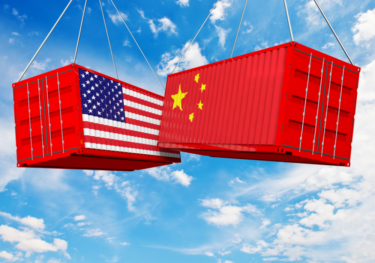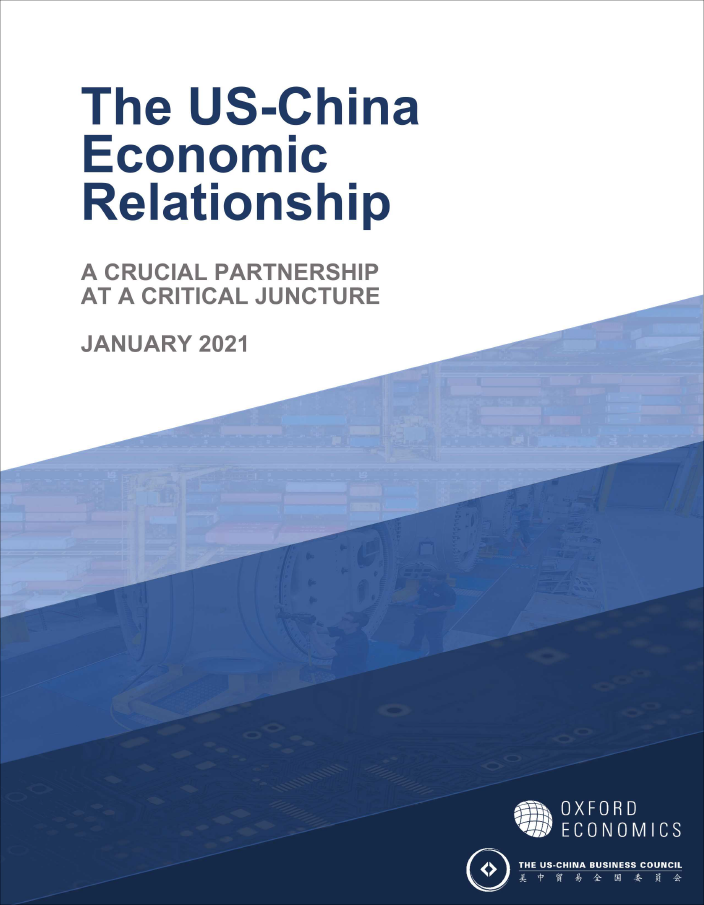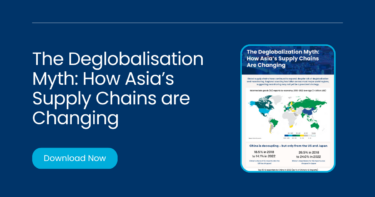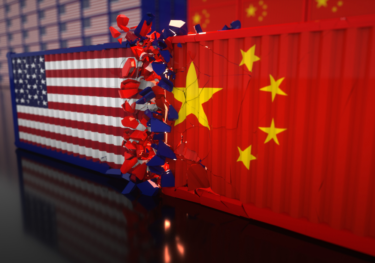Recent Release | 01 Jan 2021
The US-China Economic Relationship: A Crucial Partnership At A Critical Juncture

Macro Consulting Team
Oxford Economics


Following China’s accession to the World Trade Organization (WTO) in 2001 and its broader integration into the global economy, the US significantly increased economic ties with China. US trade ties with China peaked in 2017, with the share of US goods exports going to China reaching 8.6%, and the share of goods imports reaching 21.6%.
However, over the last two years, tension has increased across all dimensions of the US-China bilateral relationship, trade and investment relations have also deteriorated markedly. Tariffs and countertariffs have been imposed. Today, despite the phase one agreement, tariffs remain at an unprecedented level. Lines between the commercial and national security domains have become increasingly blurred.
This report sheds light on the economic significance of the US-China commercial relationship and evaluates what a future escalation or de-escalation of trade and investment ties would mean for the US economy.
The experts behind the research
Our macro consulting team are world leaders in quantitative economic analysis, working with clients around the globe and across sectors to build models, forecast markets and evaluate interventions using state-of-the art techniques. Lead consultants on this project were:

Michael Kleiman
Head of Macro Consulting, Americas
You might be interested in

Can Indian manufacturing capitalise on US-China tensions?
India has benefited from US trade rerouting away from China since 2018, albeit to a much lesser extent than some of its Asian peers. India's export strengths largely lie in sectors of the 'old economy', where growth potential is limited and competition is fierce. We estimate that the US-China trade war so far has improved India's export prospects only to a limited extent, dashing hopes that an escalation of the conflict could boost the lagging manufacturing sector.
Find Out More
Rethinking China’s productivity prospects in the era of AI
Adverse demographic trends imply that the only alternative for sustaining China's longer-term growth momentum would be to sharply accelerate productivity growth. The timely emergence of generative AI could partially close this gap.
Find Out More
The Deglobalisation Myth: How Asia’s supply chains are changing Infographic
Find Out More
China decoupling – how far, how fast?
Economic decoupling from China is ongoing, but the latest evidence suggests that, especially outside the US, the process is gradual and piecemeal. Trade decoupling may be slowly spreading from the US to other advanced economies, however surveys suggest foreign investors' attitudes to China improved slightly in 2023, though they are still more negative than a few years ago.
Find Out More